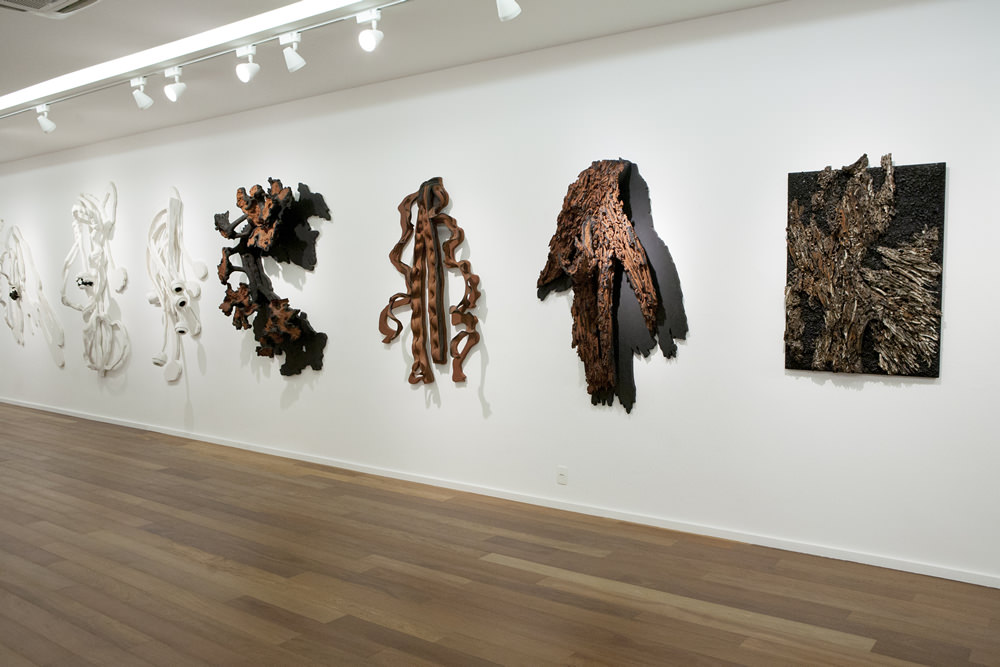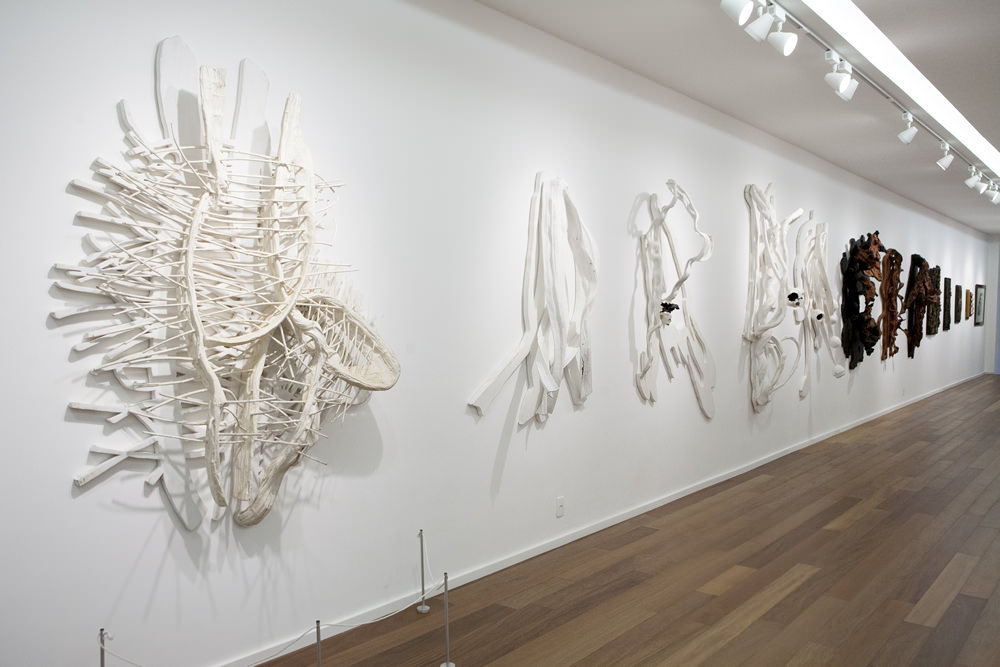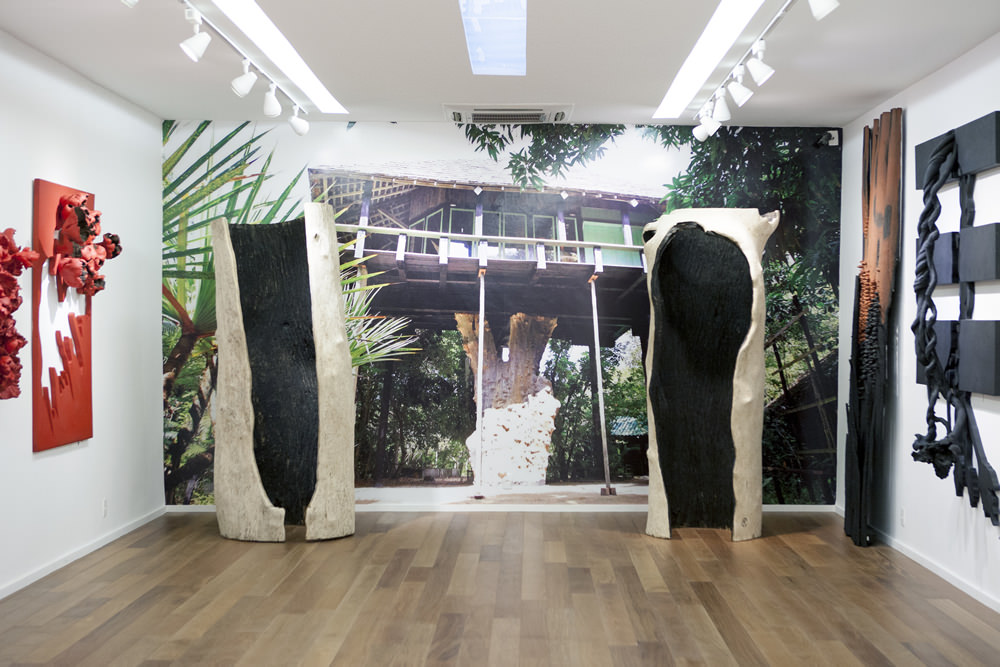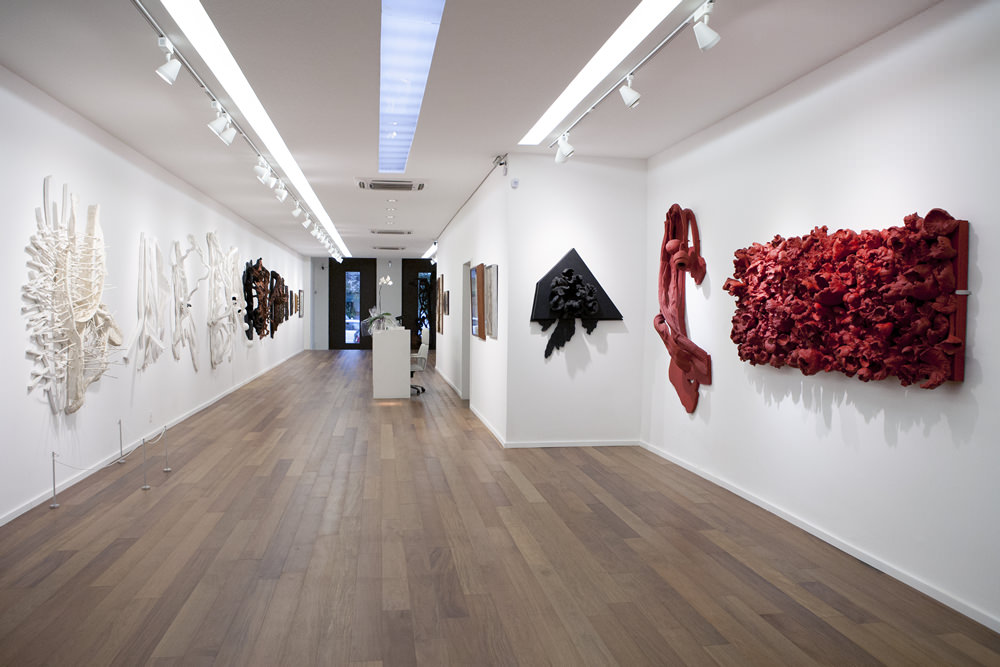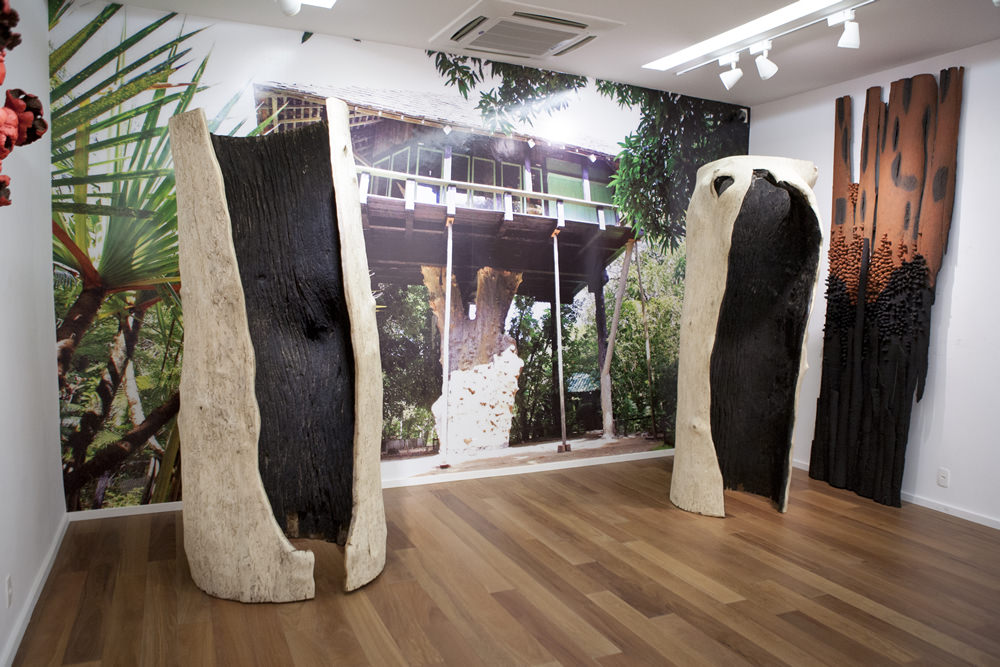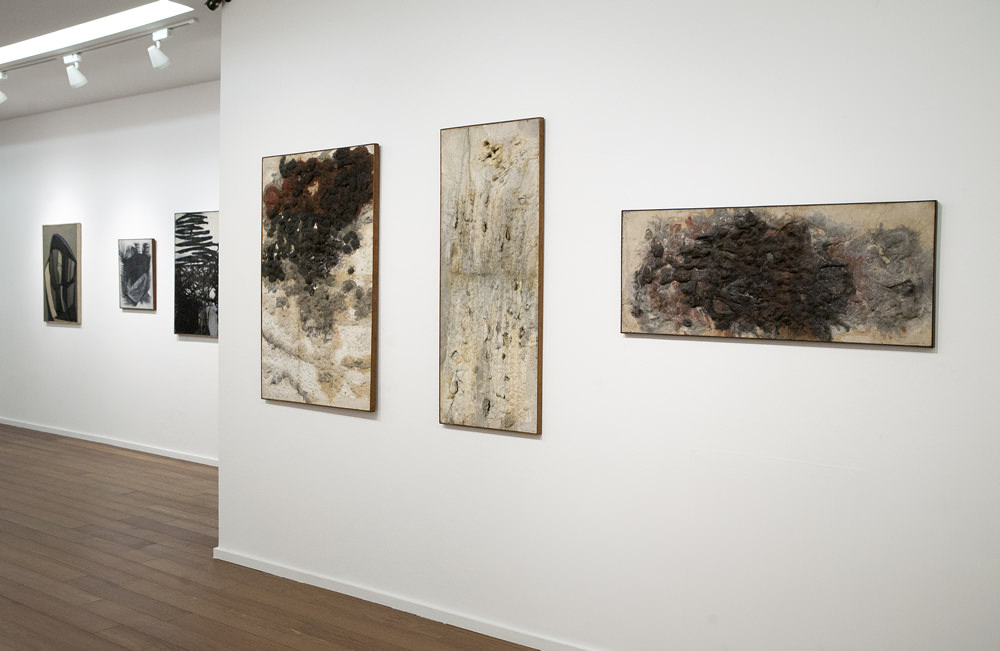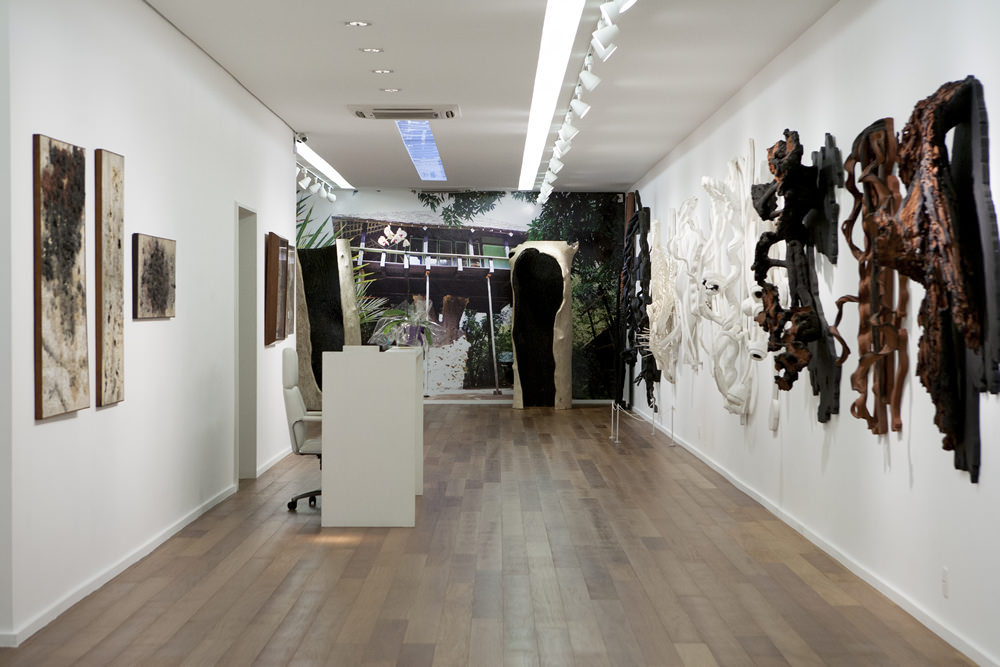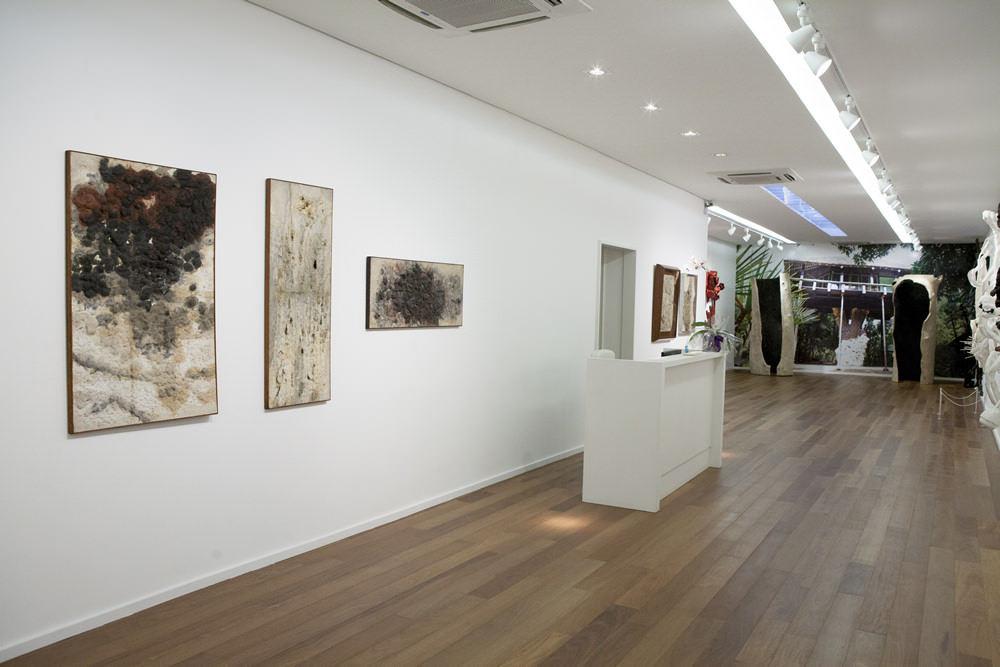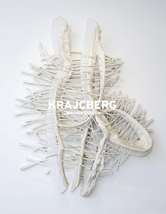Frans Krajcberg
A Tribute
FRANS KRAJCBERG
To discuss Frans Krajcberg and his work, it is necessary to observe the recent transformations of the 20th and 21st centuries, which highlight the leading role of the global capitalist system in environmental aggression. These transformations have not weakened the essence of the human mode of production. In fact, they have reinforced it, as the centrality of human beings in this process has been emphasized. The effects are observed in the organization of contemporary society, in production methods, in government financial policies, in labor relations, and especially in society's relationship with sustainability. If art is based on freedom, this tribute to Krajcberg is strongly felt in the realm of contemporary artistic production, and its effects are remarkable in terms of cultural production and, of course, in the ongoing debate on environmental preservation.
In this set of works, gathered for the first time and exhibited at Galeria Frente, the aim was to bring to the public examples that portray Krajcberg's ongoing research and struggle, and to demonstrate that they maintain a very intense relationship with each other, constantly subject to new interpretations, and that the process of integrating a poetics occurs slowly and depends on pre-established codes. In this artistic universe, which brings together drawings, paintings, and sculptures, we present an artist free and independent of the criteria of prestige that, in the symbolic order, govern the artistic and cultural world.
This artist necessarily challenges man's barbarity toward nature, appropriating new values through his work. He creates using waste from the attacked forest. It is his instrument for provoking symbolic struggle between social groups, the power to consolidate "good taste," everyday life, and the environment. Certainly, approaching Frans Krajcberg's works, within the confines of the artistic field, requires understanding the structures of domination and verifying them in the materialization of impactful works, where creator and creature are viscerally united.
Frans Krajcberg's work transcends the restricted space of the market where he is already an established artist, but reacts to being surrounded by unequal exchanges, with disputes surrounding art. It is, in essence, the materialization, through art, of the ongoing struggle for the future of the planet. It is an internal logic, with diverse limits and forces, and his mode of poetic production arises from a set of relationships marked by his life story: his participation in World War II, when he joined the Polish army in 1941, the loss of his family in Poland, and his experiences in Paris with Fernand Léger and Marc Chagall, which encouraged him to come to Brazil, where he hoped to live in a natural environment, far from the horrors wrought by man.
Upon arriving in Rio de Janeiro in 1948, he remained for a few days without accommodation, and then left for São Paulo, where he would meet Lasar Segall, a friend who would recommend him to work at the Klabin Paper Industry in the interior of Paraná. In 1950, he quit his job and decided to pursue a solitary life, heading into the woods to paint and draw with pigments he extracted from nature.
He won the award for best painter at the 4th São Paulo Art Biennial in 1957, and from then on, he traveled between Brazil, France, and Spain. In 1964, he received the City of Venice Prize. After many years in transit, Frans Krajcberg returned to Brazil in 1972 and settled in Nova Viçosa, in southern Bahia, where he lives to this day.
However, this artist was no mere protester. He decided to dedicate his life to the future of all. Not as a rejection of the world, in which the artist's lifestyle represents distance, but rather as a human being who strives to make everyone aware that there is no more time to waste.
This tribute is not intended to discuss the trajectory of an artist, whose importance and singularity are already recognized, but rather to demonstrate the transversality that art provides in society's relationship with the environment, a topic of fundamental importance in the relations between humans and non-humans, and which will determine the future of the planet.
By Roberto Bertani
